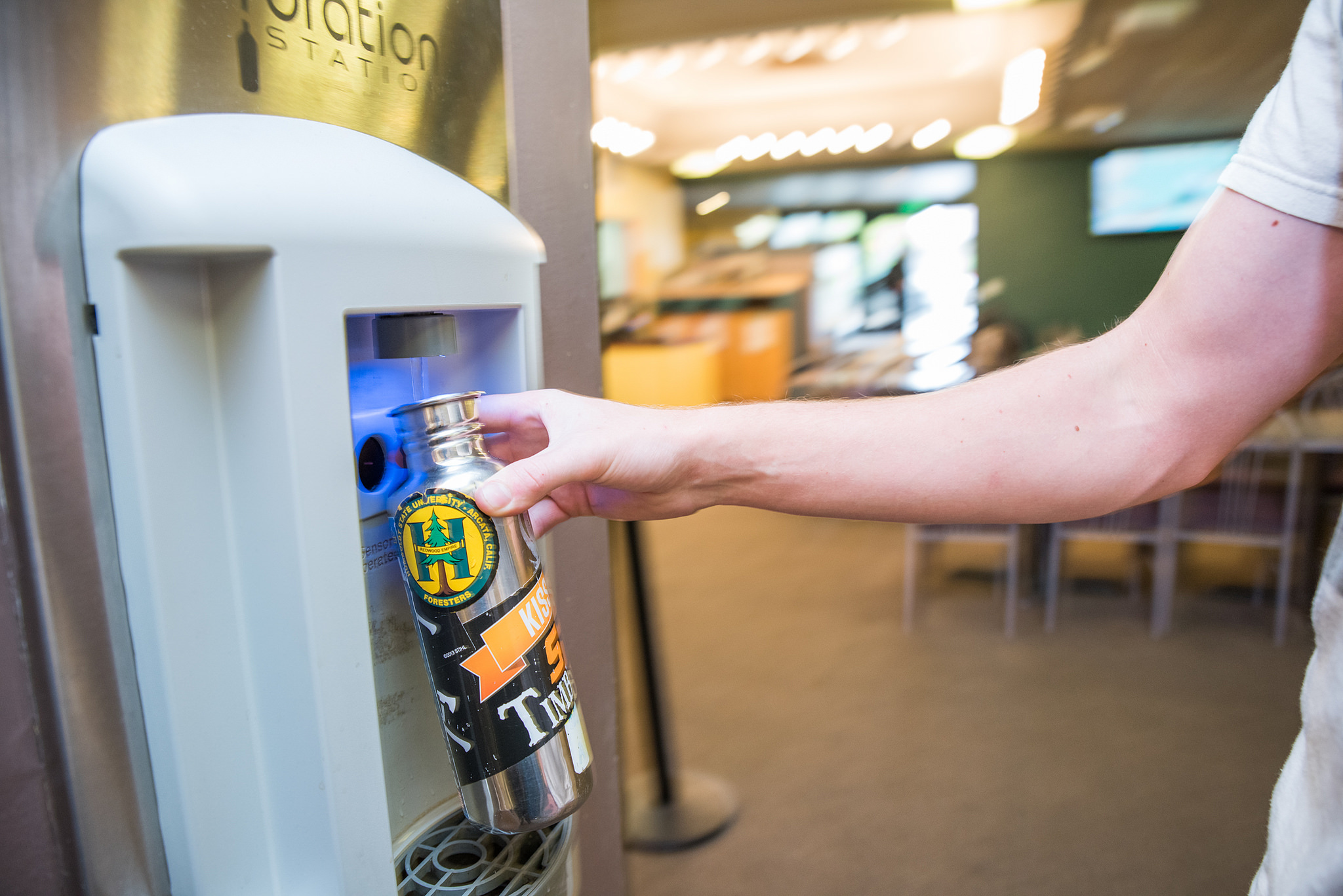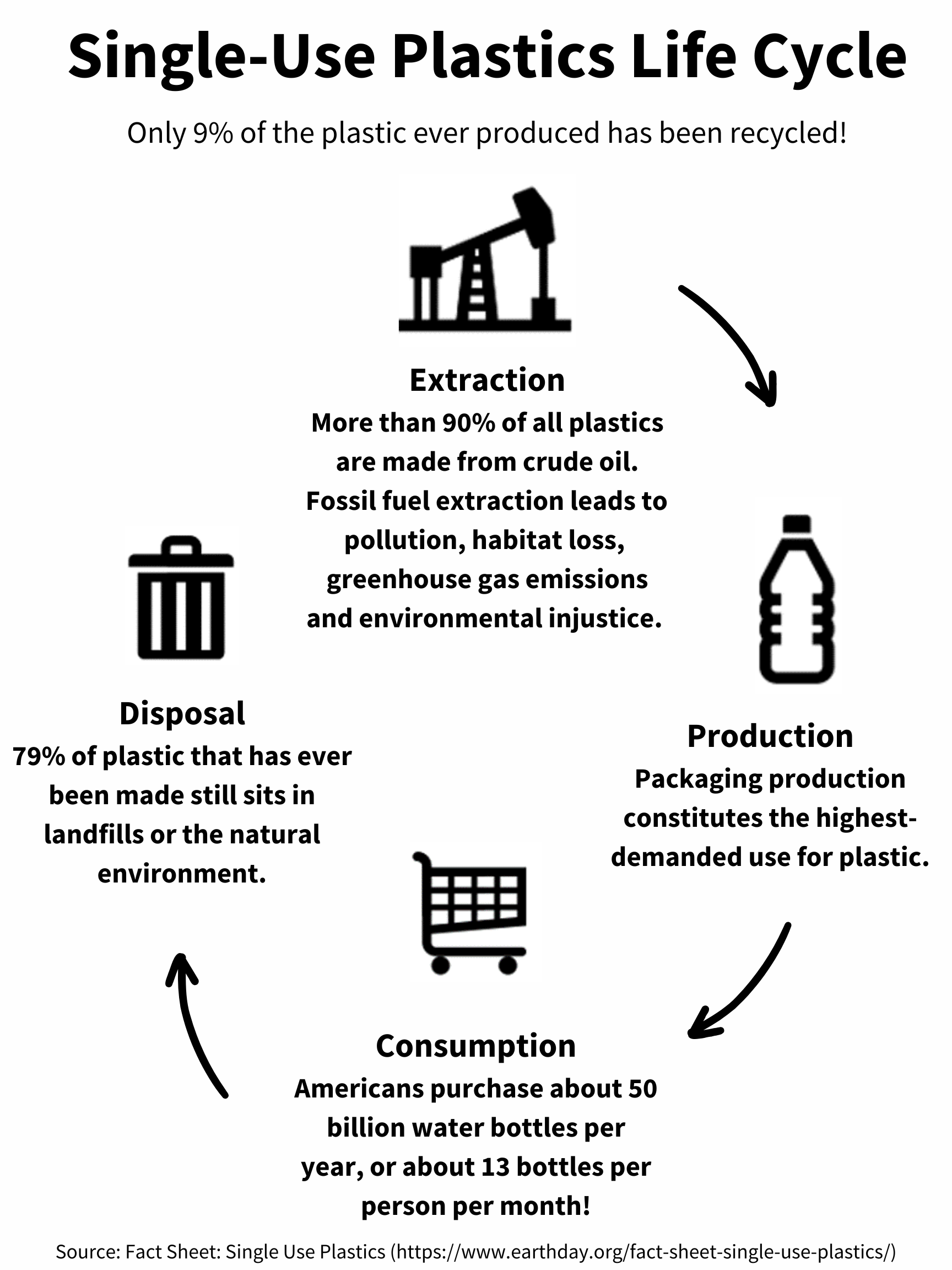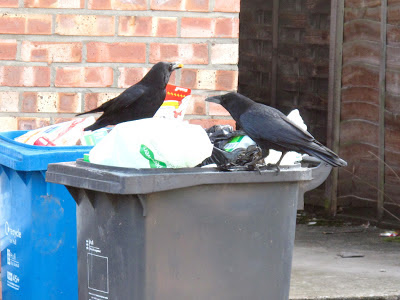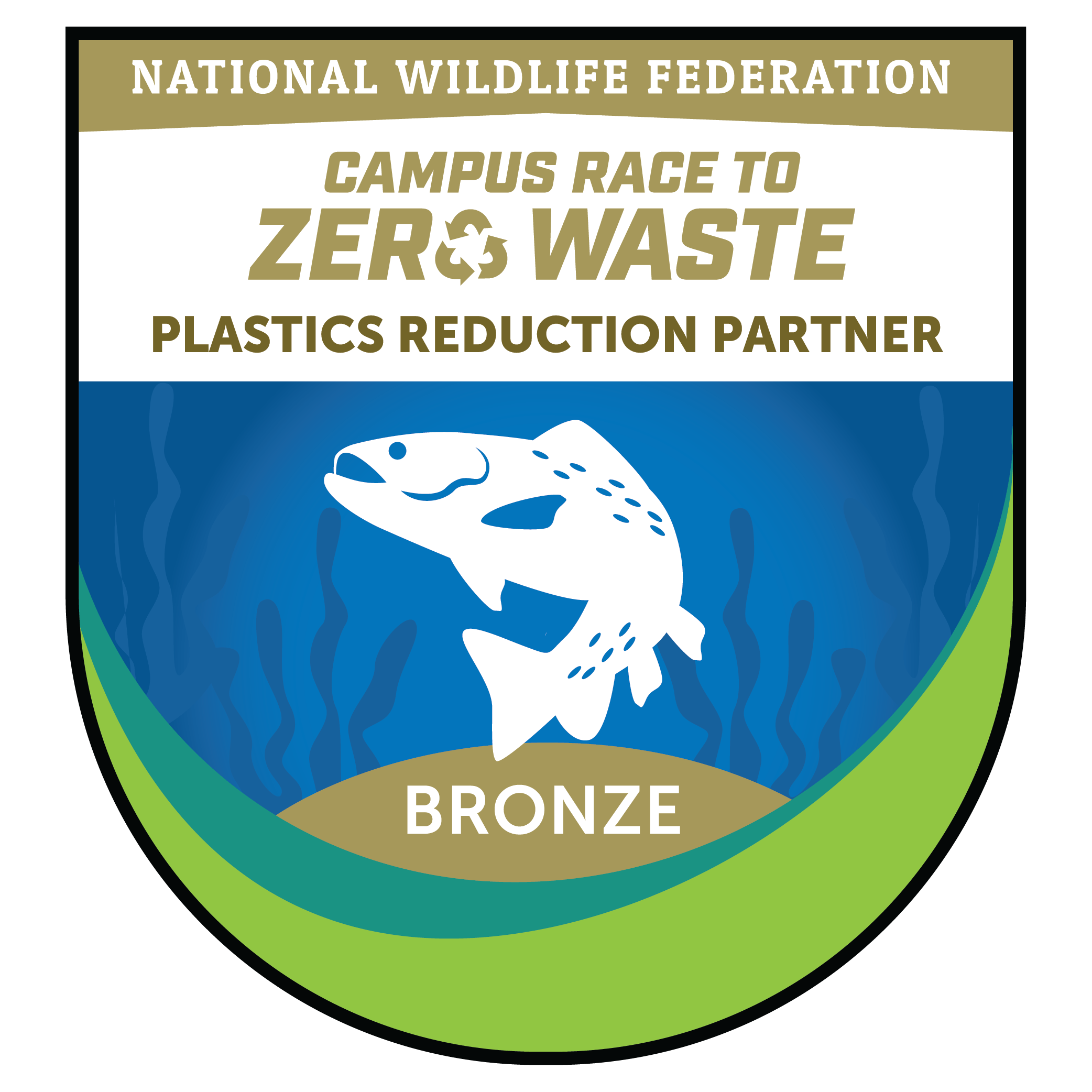Breadcrumb
Plastic Reduction

Help Us Be Free of Plastics!
Plastics contain toxic chemicals that escape during production, consumption and disposal. Whether in the landfill or littered into the environment, plastics can take hundreds of years before completely decomposing, while harming human and wildlife health, contaminating water, soil and the air, and putting vulnerable communities at risk.

Learn More and Test Your Plastics IQ!
How well do you know your plastics and their impacts to human health and the environment? Take this short quiz to find out:

10 Easy Ways to Reduce Plastic Waste
1.) Refill to avoid single-use plastics.
Whether on campus or in the community, bring your own bags, containers and cups! Use your own containers for items from bulk bins, salad bars, shampoo dispensers, fountain drinks and coffees/teas. Not only are you reducing plastic waste, you are saving money!
2.) Bring your own container for takeout.
Did you know it's the law? When on campus, use the OZZI containers for take-out food.
3.) Avoid clothing made with nylon, polyester and other synthetic fibers.
Did you know that microfibers from clothing and other textiles are the primary source of microplastics pollution in our oceans? Microfibers are released into waterways when clothes are laundered, as they are too small to be filtered out by wastewater plants. In North America alone, washing machines release an estimated 3.5 quadrillion microfibers into the ocean each year! (Source: Surfrider.org)
4.) Drive less.
Tires are primarily made out of synthetic (aka plastic) rubber, and as they wear down over time tires release microplastic dust into the environment. Vehicle tires are a major source of microplastic pollution in our oceans! So whenever possible, ride the bus, carpool, ride a bike or walk!
5.) Avoid plastic bottled drinks.
Use one of the 60+ bottle fillers on campus to fill up your reusable water bottle for free. Purchase flavored drinks that come in a can or a glass bottle.
6.) Avoid leaving free piles.
Take your donatable items to a local thrift store instead of leaving them curbside.
7.) Don't overstuff your curbside trash bin.
If you overstuff your curbside bin so the lid won't completely close, crows and other animals can get in and spread plastic waste into the environment. They are attracted to the food waste in your trash, so compost the foodwaste instead of putting it in the trash!

Source: The Rattling Crow - a blog on bird behavior, https://therattlingcrow.blogspot.com/2013/02/city-scavengers.html
8.) Buy (or grow your own) fresh fruit and veggies instead of plastic packaged produce.
Not only is it healthier, but you are avoiding a lot of unneccessary packaging. Take your own bags to the local farmers market or grocery store, or get a Community Supported Agriculture (CSA) membership at a local farm.
9.) Reuse instead of buying new.
Find free reusable office, art and classroom supplies and electronics at R.O.S.E. You can also donate these items to R.O.S.E.
10.) Don't let your plastics recycling get rejected!
Recyclers will reject your plastic recycling unless you pour out liquids, scrape out food, and wipe out oily or sticky residue before you put it in the recycling bin!
Take the Plastics Reduction Pledge
Join the movement and help us fight plastics! Click on the pledge below:

What is Cal Poly Humboldt Doing to Reduce Plastics?
Cal Poly Humboldt is a certified Plastics Reduction Partner and has been recognized for its efforts to reduce single-use plastics on campus. The university is committed to further eliminating plastics, here is what we are currently doing:
- Policy banning the sale or distribution of certain single-use plastics, including plastic water bottles, plastic straws, single-use plastic carryout bags, and polystyrene food service items.
- Installing bottle fillers at over 60 locations across campus, making it convenient to use a refillable water bottle
- Dining Services transition to single-use utensils, plates and other foodservice packaging to compostable
- Commitment by the university to switch to a natural infill for its synthetic turf fields
- Buy Recycled Policy requires the purchase of items made with recycled materials in specific categories
- Zero Waste Events certification to promote the elimination of plastic and other waste items at campus events






